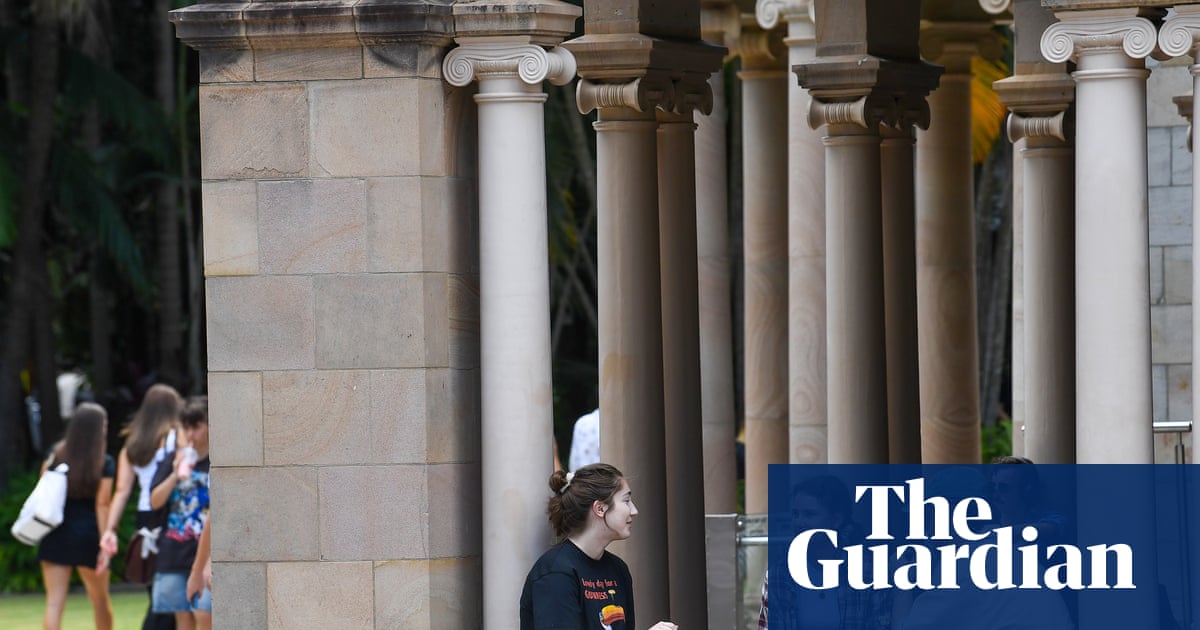
Jason Clare was the first person in his family to go to university, finish high school, or graduate Year 10, he told the Universities Australia’s annual gala dinner in 2022.
“My mum and dad never even dreamt of going to university,” the education minister said in his first address to the peak body for the higher education sector.
His parents “grew up at a time when most working-class kids in Western Sydney didn’t even finish school”, he said. “We are a different country today.”
Since that speech, the Labor government has introduced a series of reforms aimed at improving equity in higher education – from paid practical placements and a needs-based funding model to study hubs in regional and outer suburban areas.
But new research from the University of Queensland (UQ) has found one cohort is being left behind: people without university-educated parents.
Australian higher education currently recognises six disadvantaged groups, including people from low socioeconomic backgrounds, Aboriginal and Torres Strait Islander people or those from non-English speaking backgrounds, people from regional and remote areas, people with disability, and women in non-traditional areas of study such as STEM.
But first-in-family students, which constitute around two-thirds of the student population, haven’t been recognised as an official equity group in Australian higher education policy.
The study, released by UQ’s Institute for Social Research with support from the Australian Centre for Student Equity and Success at Curtin University on Wednesday, found first-in-family Australians were less likely to attend university and more likely to struggle, or drop out of their degrees.
Using a statistical analysis of 443,609 people, researchers found first-in-family students had a 36% likelihood of enrolling in a university undergraduate degree, compared with 59% of students with tertiary educated parents.
Sign up: AU Breaking News email
The report’s author, Dr Tomasz Zajac, said only people with disability were more disadvantaged in terms of their enrolment rate, at 31%. And as Australia’s higher education system becomes increasingly “massified”, there will be fewer and fewer students that were first-in-family, which could concentrate their disadvantage.
“Parental education is a really important factor, far more than economic factors,” Zajac said. “First-in-family students find it harder to navigate the university system. You have to know how to apply, where to apply, what you can expect if you apply.”
Zajac is calling upon the federal government to recognise first-in-family students as disadvantaged within the education system. Doing so would offer financial benefits through grants and scholarships, admission advantages such as adjustment factors, and allow for better performance tracking over time.
after newsletter promotion
He said first-in-family students should also receive outreach and career counselling programs early in their education, and additional mentoring and guidance once arriving on campus.
“The Australian government and other stakeholders need to consider funding further research exploring why attitudes and aspirations of [first-in-family] young people differ and how they shape educational outcomes,” Zajac said.
“University education has a pivotal role to play in enhancing the socioeconomic status and quality of life for disadvantaged individuals.”
The barriers go beyond access, Zajac said. First-in-family individuals are also less likely to secure a spot at a first-tier university, or to enrol in prestigious degrees like medicine, instead favouring education and care programs.
Over half of non-first-in-family students attended selective universities, compared with just 39% of first-in-family students.
“This is important because it means elite spaces remain exclusive,” Zajac said.
“They shy away from the most prestigious and highest earning degrees but they’re also less likely to study degrees with the lowest earning capacity, likely because of the lack of financial security.”
Prof Ian Li, the research and policy program director of Australian Centre for Student Equity and Success, said being first-in-family should be considered in government policies aimed at levelling the educational playing field.
“Students who do not have university educated parents make up a large part of the student population and often have to navigate the school and university systems without parental advice and role models,” he said.
Disclaimer : This story is auto aggregated by a computer programme and has not been created or edited by DOWNTHENEWS. Publisher: theguardian.com





